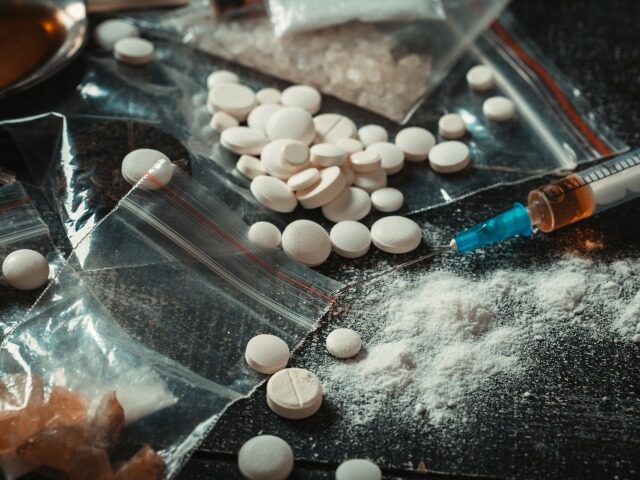A 51-year-old man was arrested in Vancouver on Thursday, the day after he parked a trailer downtown and began selling cocaine, crack, methamphetamines, and heroin with all the nonchalance of a food truck vendor slinging hot dogs.
Police refused to identify the suspect, but Canadian media immediately deduced it was none other than Jerry Martin, the entrepreneur who declared his intention to open such a mobile drug dispensary in January.
Another clue that Martin was the perpetrator is that he announced the exact day and time he planned to open for business in Vancouver and posted photos of his mobile store — a little black shed with plexiglass windows and wheels designed to be towed by an SUV.
The sales window was adorned with a bright yellow menu listing prices for everything from crack to heroin in various quantities. Martin adamantly insists that heroin is safer than fentanyl, currently the opioid of choice on the streets of Vancouver. He delayed opening his store for a few months while he nailed down a good heroin supply. He even had a neon sign made up with his establishment’s straightforward name, “The Drugs Store.”
In addition to the plexiglass windows and bank-style secure transfer trays he installed to protect his merchandise, Martin wore a bulletproof vest while manning the store. At the time of his arrest, Martin’s mobile store had attracted dozens of customers, even though his menu price of $90 for a gram of cocaine was a bit high for the Vancouver market. Martin’s prices reflected the cost of having his supply checked for purity by a well-known local testing facility.
“Providing a safe, clean supply is going to hopefully stop a lot of the overdoses and a lot of the injuries and stop girls from having to do certain things just to get their drugs,” he told CBC News.
Martin said all customers are required to furnish I.D. proving they are 18 or older and sign a waiver saying they have experience using the drugs they wish to purchase.
“Just for someone buying their drugs, this is a lot safer. People have to go through many things to get their drugs – you could get robbed in an alley and many women get abused,” he told Global News when his little store rolled up to a downtown Vancouver intersection and opened its stab-proof windows for business.
“It’s also going to stop a lot of the overdoses as people don’t even know what they are getting (typically). It’s very important that people know when they are buying something, they are getting that product,” he said.
Martin said in January he planned to go into business as soon as British Columbia, which legalized recreational marijuana in 2019, implemented a policy to decriminalize small amounts of most other illegal drugs. B.C. police were already tacitly allowing the consumption of these drugs by refusing to arrest offenders.
Some supporters of decriminalization said the British Columbia three-year pilot program did not go far enough because the permissible quantities of hard drugs were very small, so users would still be making dangerous deals with organized crime to get their fixes.
Martin announced he would solve that problem by opening a brick-and-mortar (or, as it worked out, plexiglass-and-wheels) Drugs Store. Skeptics wondered where he would get the bulk quantities of cocaine and meth needed to supply a retail operation. B.C. officials pointed out they were legalizing possession of the drugs, not sales, and certainly not bulk purchases for resale.
Martin said his goal was to get arrested so his case could force a constitutional challenge to all of Canada’s remaining drug laws on the grounds that constitutional guarantees of “life, liberty, and security of person” for every Canadian should include a supply of safe drugs. He evidently got his wish on Thursday, as Vancouver police testily insisted that drug trafficking remains illegal.
“We support measures aimed at improving public safety for people who use drugs, including harm reduction services and decriminalization. However, we remain committed in our position that drug trafficking will continue to be the subject of enforcement,” said Constable Tania Visintin.
“Should the City be made aware of a retailer selling any of these substances or products containing them, they would be subject to enforcement for operating without a valid development permit and/or business license, which may include orders, fines and/or prosecution,” City of Vancouver license inspector Sarah Hicks said in an email to the media.
The suspect (who the police have not officially confirmed is Martin) was released pending a court appearance on the condition that he refrains from returning to the Downtown Eastside. He had not been formally charged with any offense as of Friday morning.

COMMENTS
Please let us know if you're having issues with commenting.